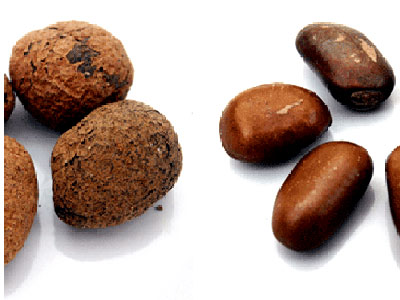
KNOWN as Ehuru ofia in Igbo language, Gujiya dan miya in Hausa and ariwo in Yorubaland, African nutmeg is one of the most widely used ingredients for spicing meals.
It is used to prepare meat dishes such as goat stew (Isi Ewu), and African salad and stew. It is used to relieve constipation, mild fever and control passive bleeding from the womb immediately after childbirth.
African nutmeg is rich in potassium, calcium, manganese, iron, zinc, copper, magnesium and vital B-complex vitamins, including vitamin C, folic acid, riboflavin, niacin, vitamin A and many flavonoid anti-oxidants that are essential for optimum health.
STUDIES have shown that intake of African nutmeg helps in better intellectual performance (brain booster), controls heart beat and blood pressure, treats kidney infections and dissolves kidney stones, increases sexual desire, treats insomnia (sleeplessness) and removes bad breath.
In traditional medicine practice, especially in many African countries, the African nutmeg is widely used to relieve toothache, dysentery, dermatitis, headache and as worm expeller.
So, when next you develop diarrhoea, that age-long cooking spice may be the way out. In fact, a new study titled, In vitro anti-sickling effects of nutmeg, has just added African nutmeg to the list of food items that can help alleviate problems associated with sickle cell disease.
Other uses of African nutmeg include the treatment of body aches, chest pains and rashes due to river blindness and leprosy.
Having considered all the health benefits, it is pertinent to point out that African nutmeg should be taken in moderation because excessive intake can be harmful to the body.



